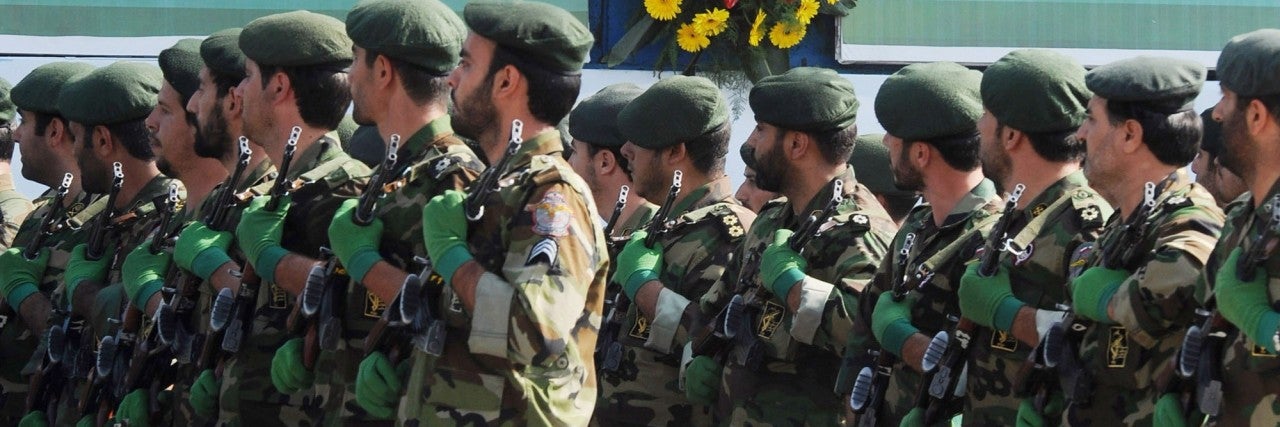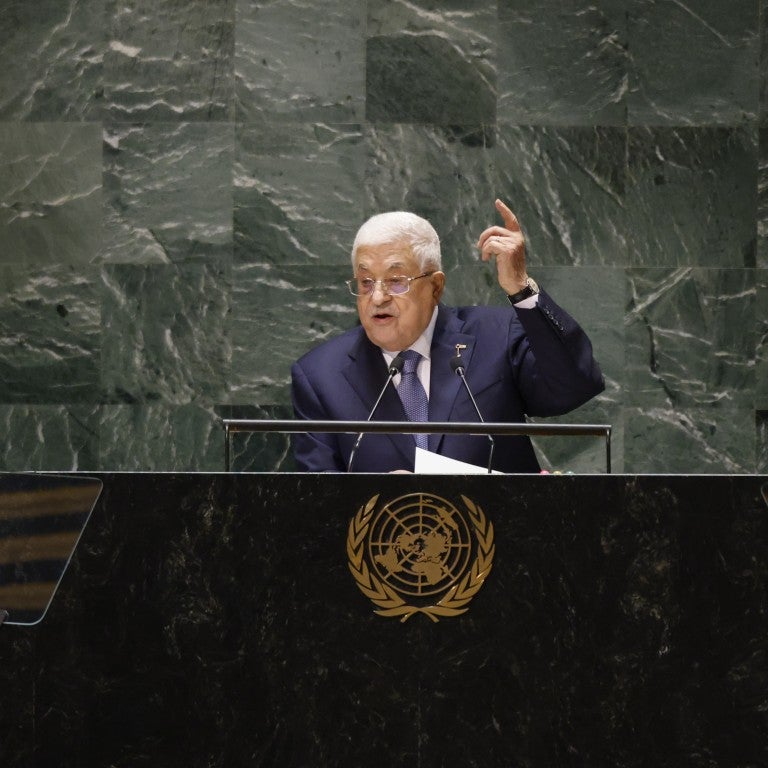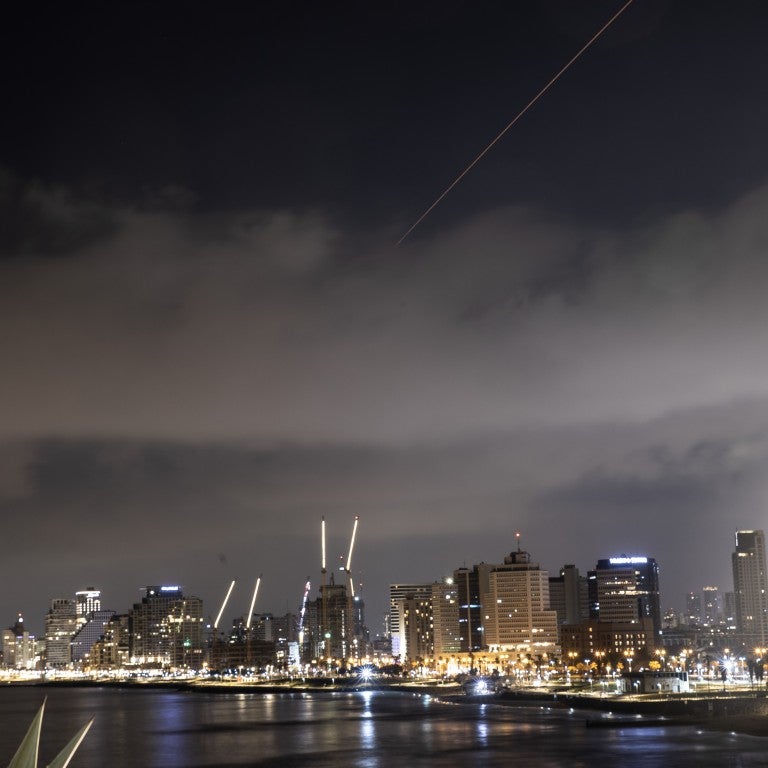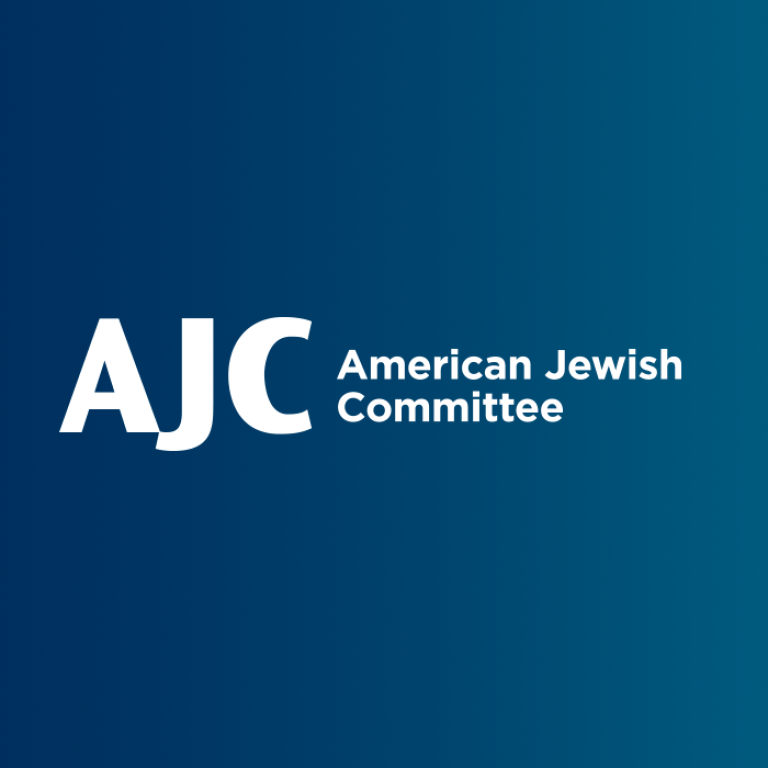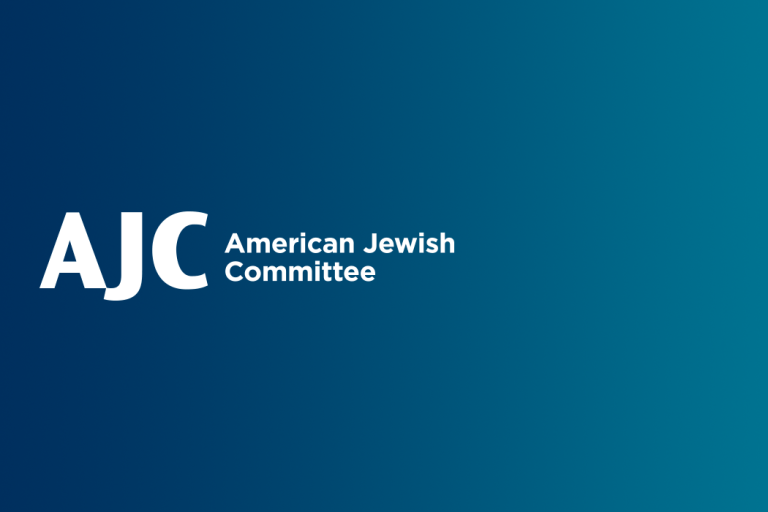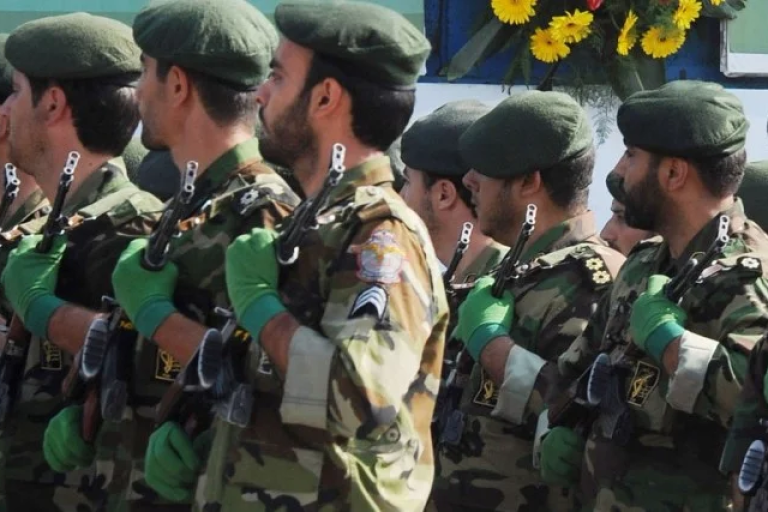April 1, 2024
On April 1, an alleged Israeli airstrike near Iran's embassy in Damascus, Syria, reportedly killed seven members of Iran's Islamic Revolutionary Guard Corps (IRGC), a U.S.-designated terror organization. Among those killed was a top IRGC commander, Mohammad Reza Zahedi.
Zahedi was reportedly responsible for the terror group's operations in Syria and Lebanon, including its ties with Hezbollah, an Iranian terror proxy in Lebanon. According to Israel's Army Radio, Zahedi oversaw all Iranian terror operations against Israel from Syria, Lebanon, and the "Palestinian sphere."
Zahedi's killing is the most senior IRGC official to be killed since the January 2020 killing of Qassem Soleimeni by a U.S. drone.
In the early hours of April 14, 2024, sirens and explosions were heard nationwide in Israel as the Iranian regime launched a wave of more than 300 drones and missiles at the country in its first-ever direct attack on the Jewish state.
Here's what to know about the IRGC, its terror designation by the U.S., and its relationship with Hezbollah and Hamas.
What is the Islamic Revolutionary Guard Corps (IRGC)?
Not to be confused with Iran’s traditional armed forces, the IRGC is a parallel military body formed during the Islamic Revolution in 1979. It maintains its own air, land, and naval branches and protects Iran’s fundamentalist regime. Its special operations unit, the elite Quds Force, has helped establish proxy militias like Hezbollah in Lebanon, Syria, and Iraq.
The group reports directly to Supreme Leader Ayatollah Ali Khamenei and has an estimated 125,000 fighters, with army, navy, and air units. It also commands the Basij religious militia, a paramilitary force that has been used by Iran's clerics to crack down on anti-government protesters.
It also plays an essential role in Iran’s aggression. The Quds Force is the IRGC's paramilitary and espionage unit that heavily influences allied terror groups throughout the Middle East, from Lebanon to Yemen. Quds Force members have fought in support of Syrian President Bashar al-Assad during the country's civil war.
In March 2022, the IRGC said it launched a second surveillance satellite into space, defying a UN Security Council resolution, and demonstrating that Iran has the technology necessary to achieve intercontinental ballistic missile capability.
In January 2021, missiles fired by a U.S. drone destroyed the convoy of Qassem Soleimani, the then-commander of the Quds Force who was in the process of arming Palestinian resistance groups to wipe out Israel.
What are some key measures taken against the IRGC?
The IRGC is the only foreign state entity on the roster of 67 other militant factions on the U.S. State Department’s list of foreign terrorist organizations (FTOs). Declared a state sponsor of terrorism in 1984, Iran already faced sanctions, including restrictions on U.S. foreign aid, a ban on defense exports and sales, and other miscellaneous financial restrictions.
Since 2007, the Department of Treasury has targeted the IRGC for its connections to Iran’s human rights abuses, backing Iran’s ballistic missile and nuclear programs, and supporting Hezbollah and Hamas.
The designation in April 2019 imposed at least two new restrictions, according to Matthew Levitt, Director for the Reinhard program on Counterterrorism and Intelligence at The Washington Institute for Near East Policy. The U.S. can prevent terrorists from entering the country by denying visas to current and former members of a designated group. In addition, third parties – individuals, companies, and countries – can face criminal charges if they don’t comply with U.S. sanctions against a terrorist group.
The unprecedented designation of IRGC gave other countries the confidence to blacklist the IRGC and Hezbollah, another dangerous Iran-backed terrorist operation. Although the U.S. declared Hezbollah a terrorist organization in 1997, other countries had been reluctant. But since then, Germany, Lithuania, Serbia, Argentina, and Australia have designated Hezbollah a terrorist group in its entirety. Still, most of the 27 European Union countries distinguish between Hezbollah’s militant and political wings and limit the terrorist label to its militant activity. Levitt calls this fiction, given the group’s ongoing sponsorship of antisemitic terrorist attacks across Europe and around the world.
“As European law enforcement officials can attest, banning only part of Hezbollah has not worked,” said Levitt. “Hezbollah called the EU's bluff and has continued engaging in terrorist and criminal activities notwithstanding the ban of certain parts of the group. The only remaining question is what Europe is willing to do about it.”
Jason Isaacson, AJC Chief Policy and Political Affairs Officer, said the IRGC designation hopefully clears the way “for other states to adopt a similar approach to this and other Iranian forces and proxies, notably Hezbollah, that threaten peace and stability.”
How does Iran support Hamas and Hezbollah?
Iran has long been known to provide support to both Hamas and Hezbollah. Iran's support for these groups is part of its broader strategy to increase its influence in the region and counter the influence of Israel and the United States. It sees these groups as proxies that can carry out its interests and goals in the region, including opposing the West and calling for Israel’s destruction.
To support Hamas, Iran provides financial aid, weapons, and training. Hamas is based in Gaza, a Palestinian territory that is bordered by Egypt and Israel. Its border with Israel is under a security blockade, so Iran’s support is crucial for Hamas to maintain its military capabilities. Iran provides Hamas with rocket technology and expertise, including advanced training, which has enabled Hamas to launch rockets into Israel during conflicts.
As for Hezbollah, Iran has been its main supporter and patron since the terror group was founded in the early 1980s. Iran provides financial support, weapons, and training to Hezbollah. Iran has also been known to provide Hezbollah with rockets and other advanced military technology, which has allowed the group to launch attacks against Israel and maintain a significant military presence in Lebanon.
